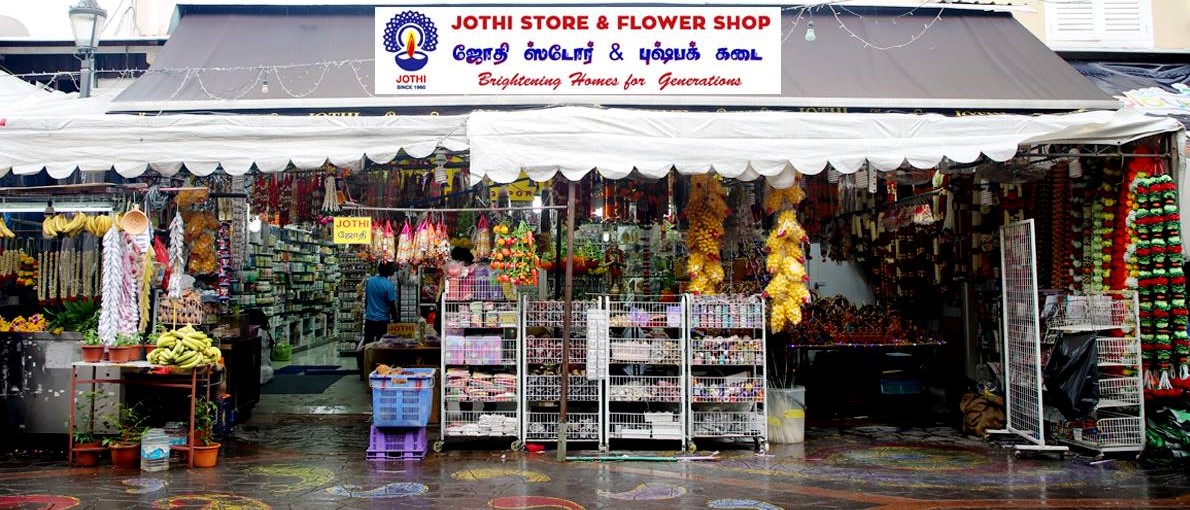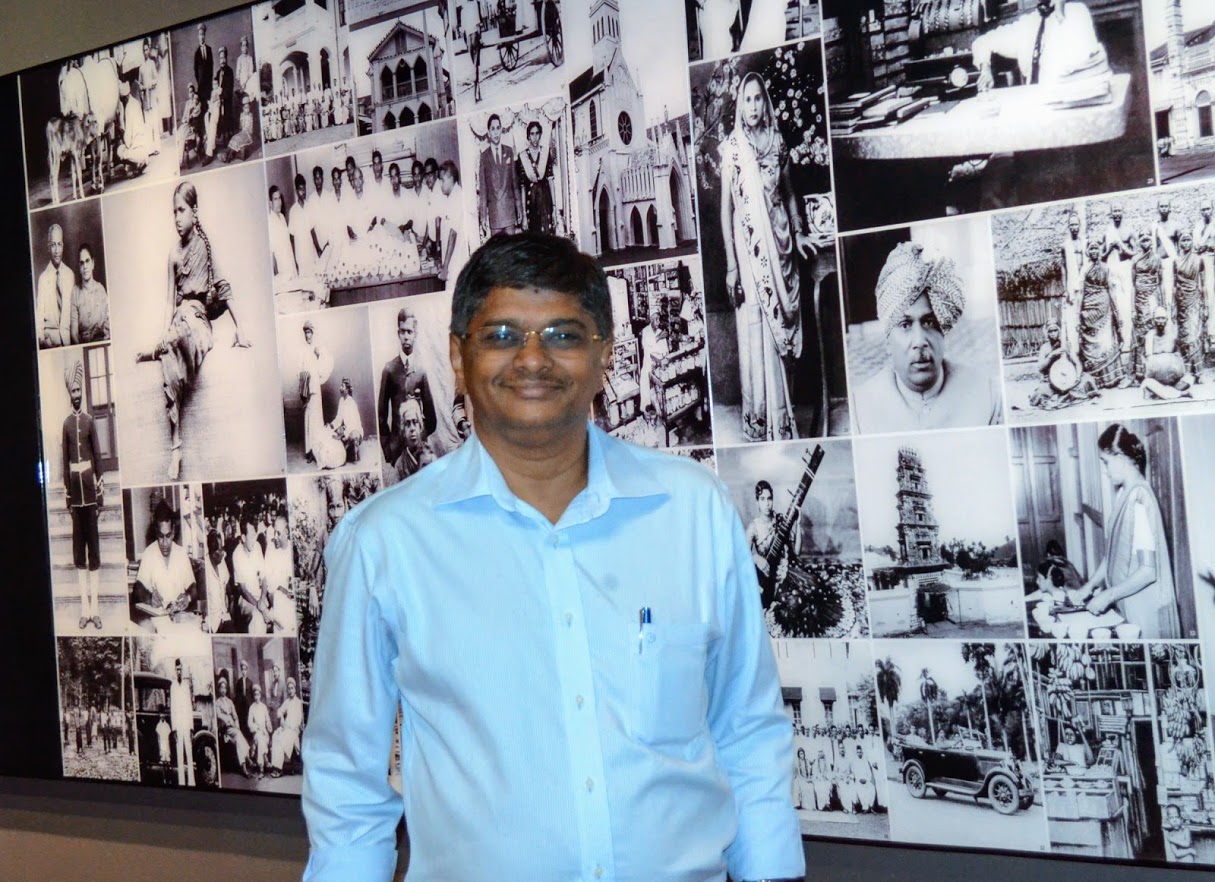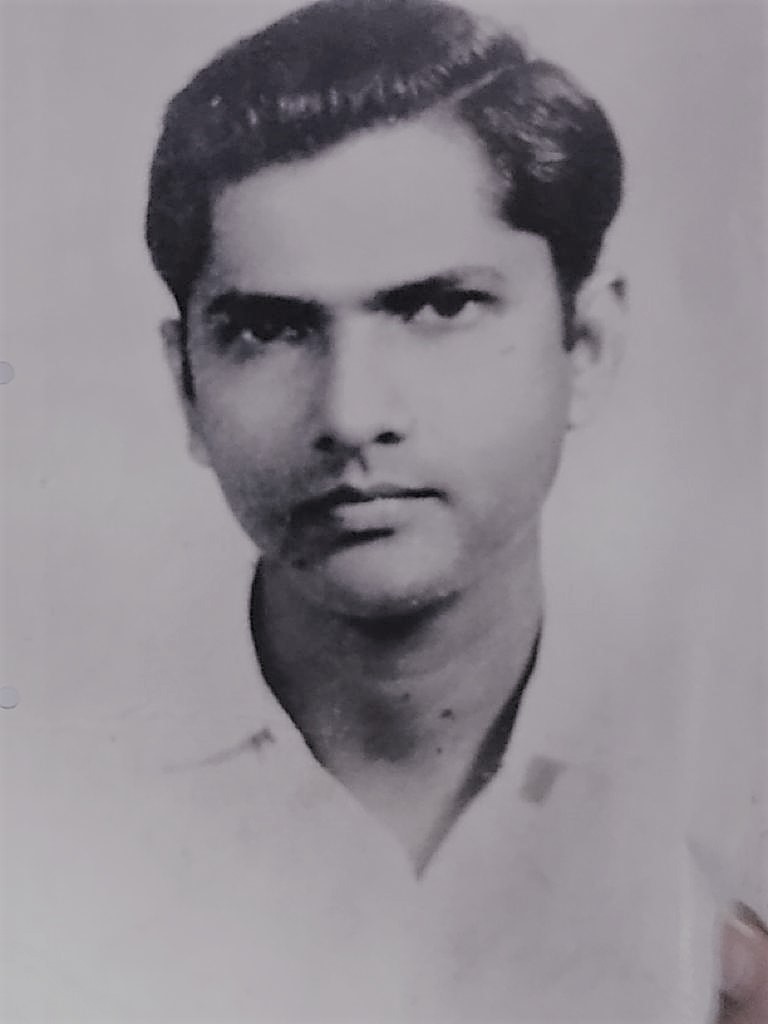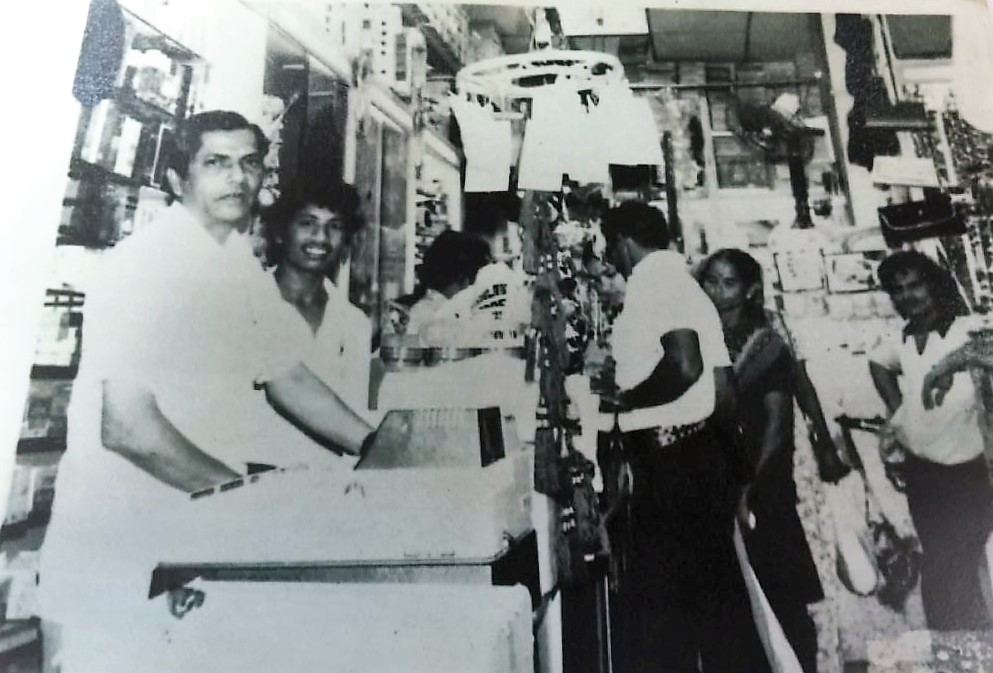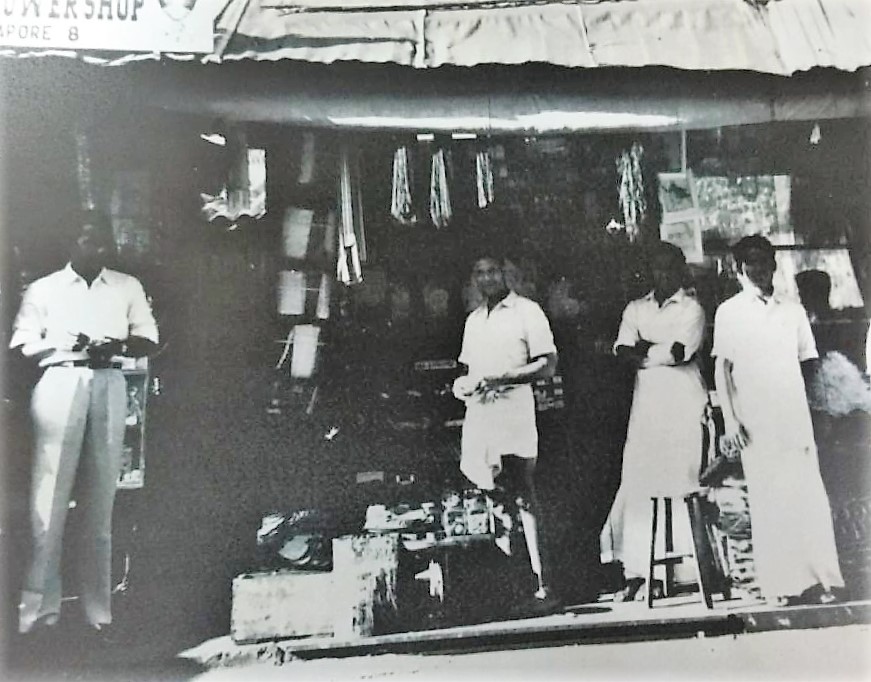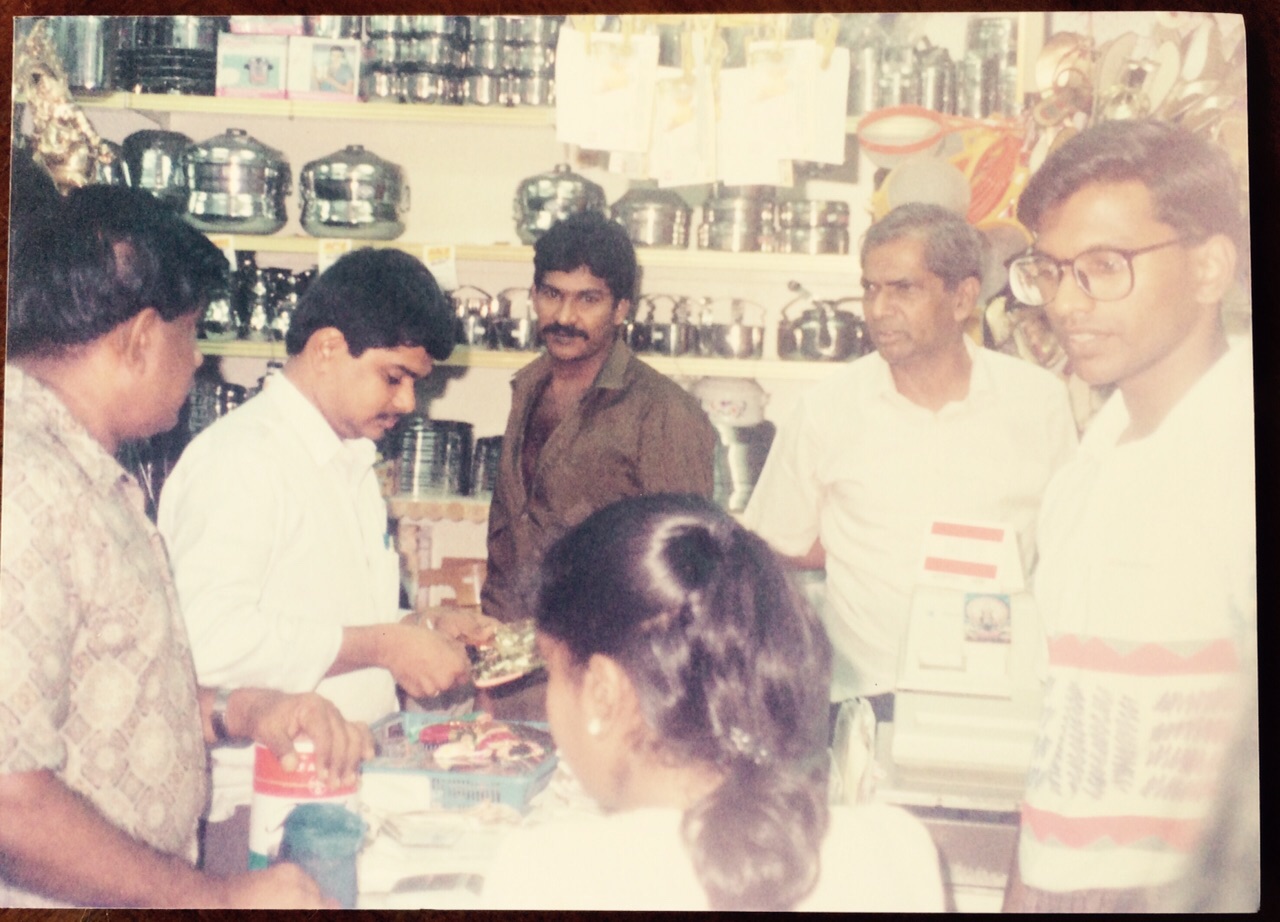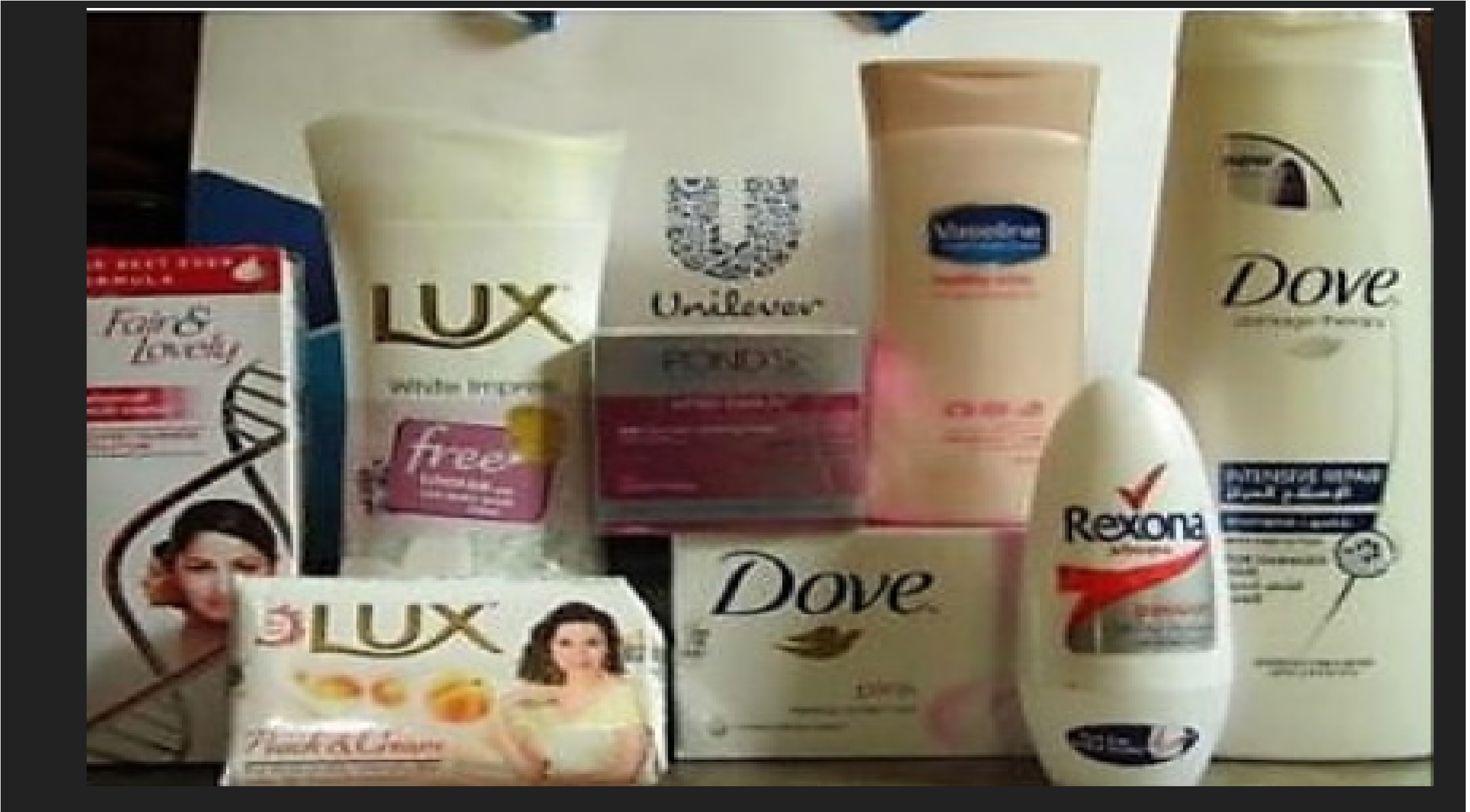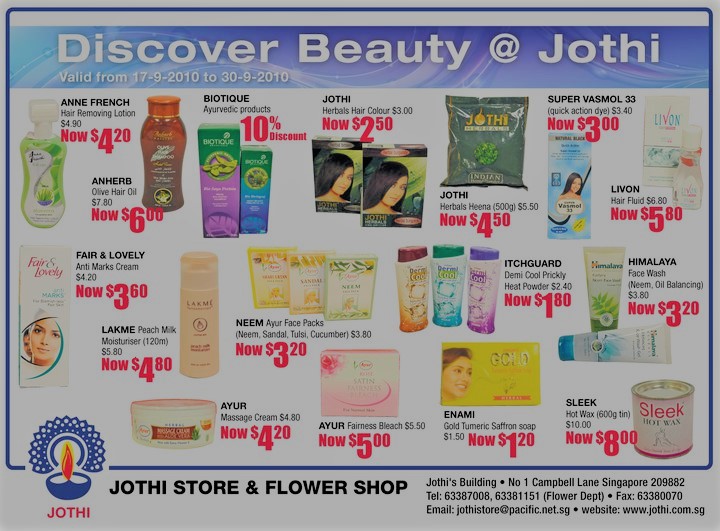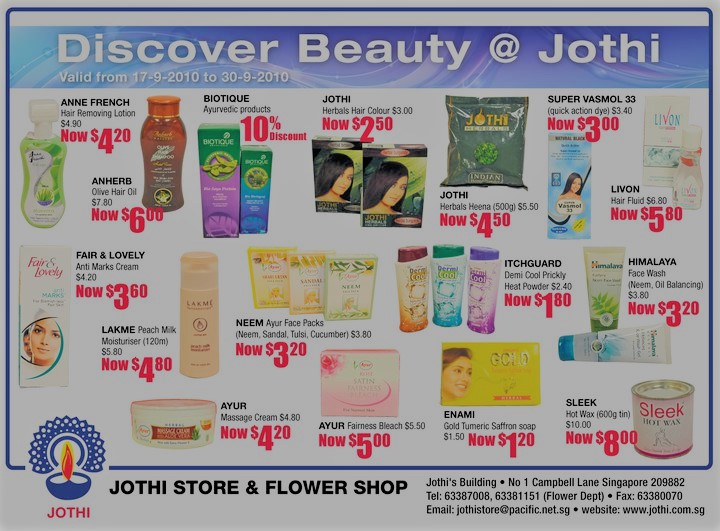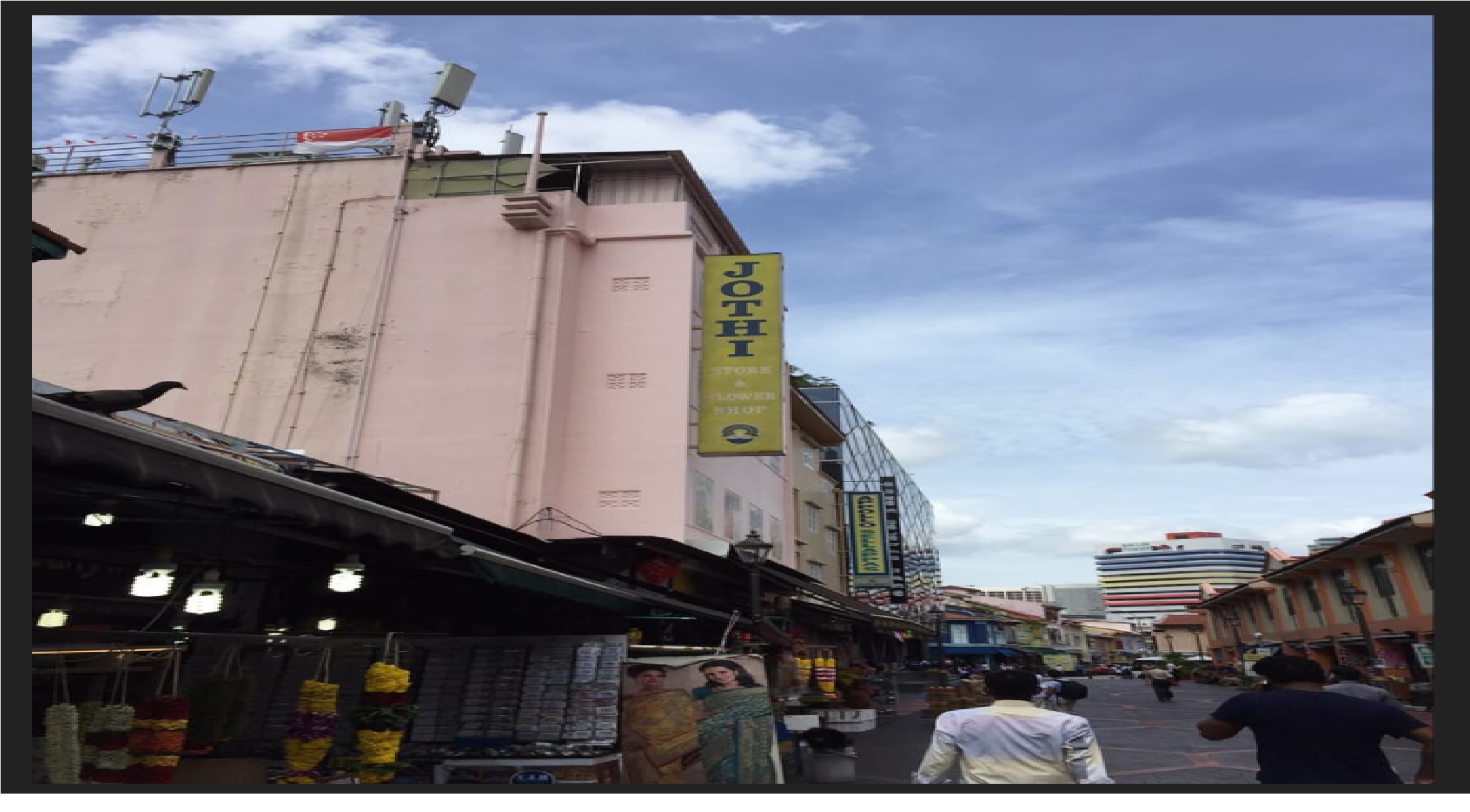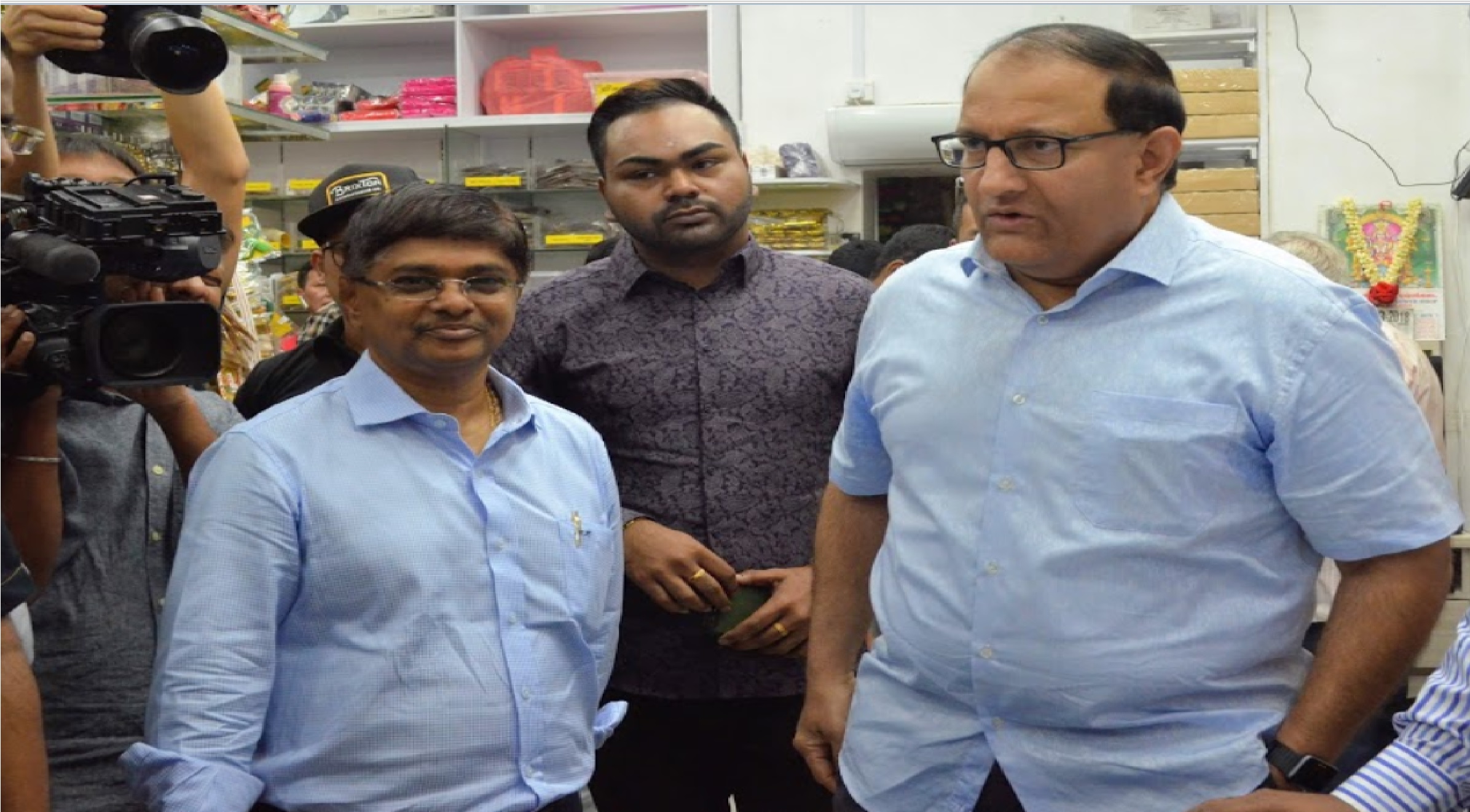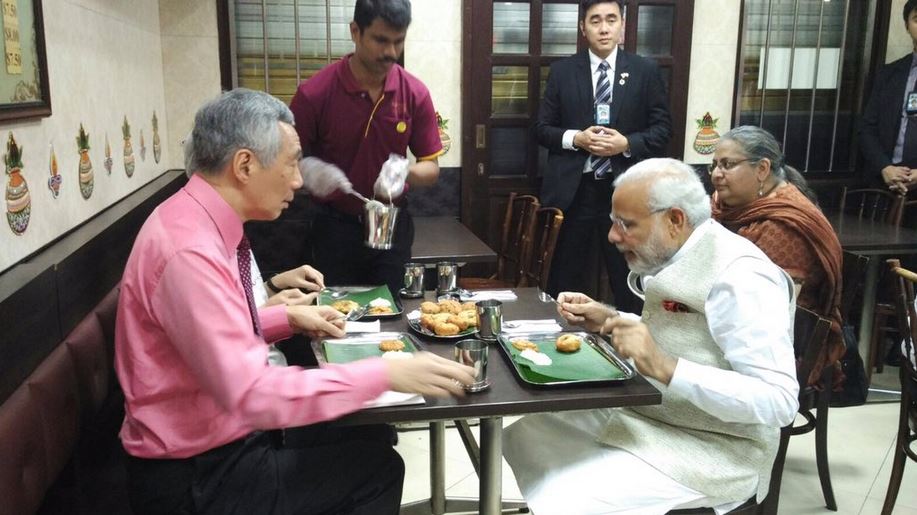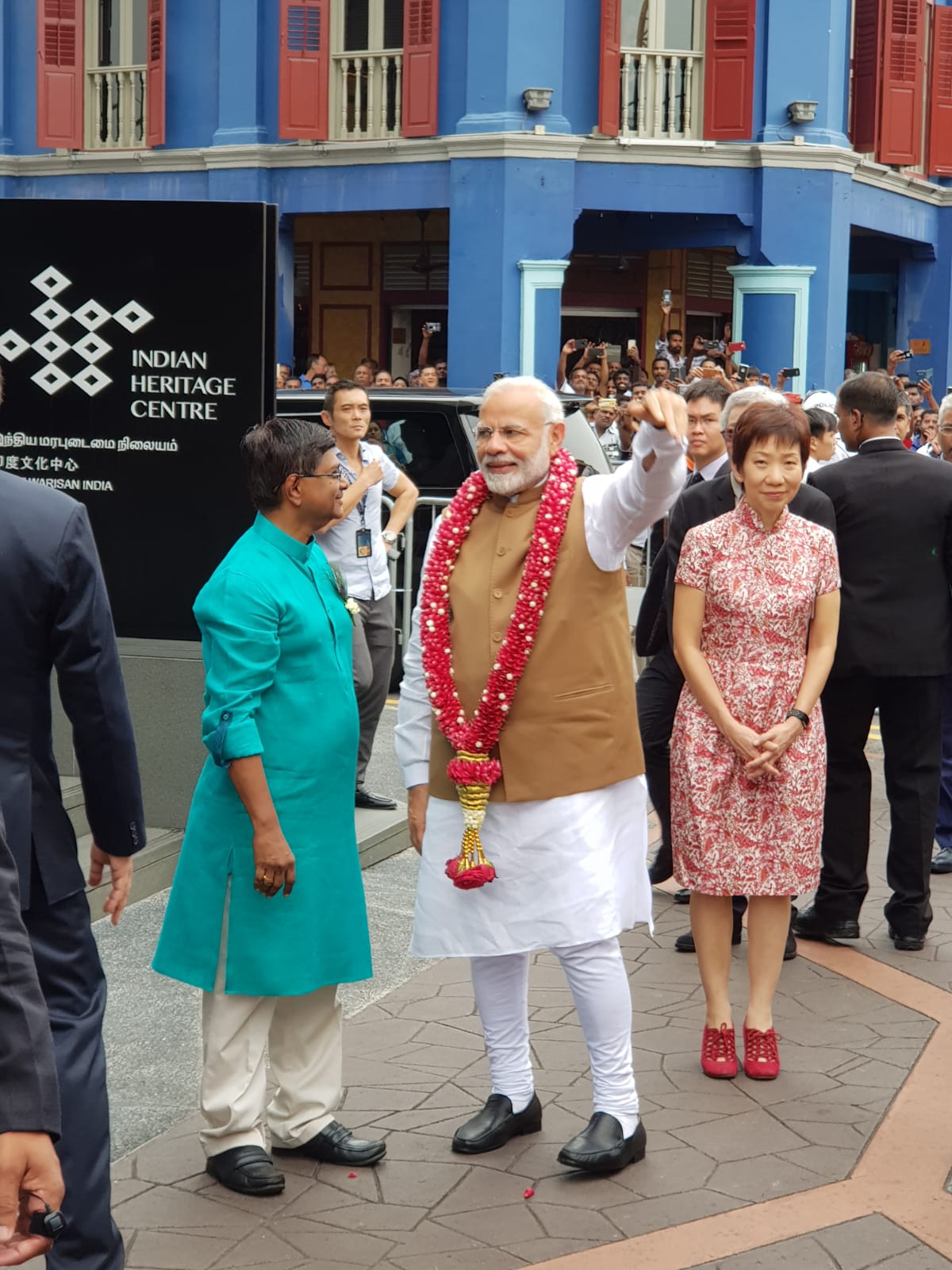Indians living in Singapore will know the name Jothi Store & Flower Shop well. Located in the heart of Serangoon Road in Little India, the store caters to the cultural, religious and social needs of the Indian community. A veritable one-stop shop for all purchases for customs and rituals from child-birth to funerals, Jothi is also a main draw for tourists who stop by to sniff the fragrant blooms that adorn the store or check out the colourful displays as they walk through the heritage precinct of Little India.
However, while most of the Indian diaspora in Singapore will have heard of Jothi Store, not many are familiar with the man behind the success of the business – Raja Kumar Chandra. Connected to India spoke to Chandra at the vibrant and busy ethnic quarter of Little India, to learn more about his journey in turning Jothi Stores into the successful business that it is today.
A humble beginning
The 58-year-old Jothi Store flower shop has its roots in a small 5-foot sidewalk shop selling betel leaves, started by Murugaia Ramachandra who came to Singapore from South India in 1947. In 1961 he started a small shop, and the business grew from there. Today, his son Raja Kumar Chandra, 61, is the proprietor of this successful enterprise running from a 5-storey premises prominently located at the entrance of Campbell Lane.
The growth of the shop runs parallely with that of Singapore's diaspora. The 50s saw many single men migrate to Singapore from India, who came to work sans their families. They would shop for necessities like beedis and betel leaves in Little India. “It used to be called Tekka but over time it was called Little India. However, it of course is not a place just for Indians, but for all Singaporeans,” says Chandra.
In the late 60s, especially after Singapore’s independence, families from India started making the island nation their home and raising their children in this country. The merchants in Little India began adapting to the changing needs of the diaspora community and their businesses started to grow. In the mid-80s, an influx of a large number of migrants further changed the Indian community in Singapore and with this growth in the population, big businesses like Mustafa began shaping Little India’s development, with the area becoming very active and vibrant.
Learning on the job
The sudden popularity of Little India amongst the fast growing Indian community in Singapore and the influx of bigger businesses like Mustafa into the area meant that smaller enterprises like Jothi Stores also had to change the way they operated.
“In the beginning my dad had to open the shop at around 4.00-5.00 am. Staying at Katong and coming to Little India so early was a big hassle and the shop would close at around 9.00-10.00 pm. That’s why we moved closer and this changed me,” reminisces Chandra. “I had to go help my dad after school and it became a hobby for me. This is how I saw the changes in Little India over time and how the businesses took over the area,” he adds.
Chandra spent much of his time helping his father until his ‘A’ level examinations. In 1981, after completing his National Service obligations, Chandra flew to Canada and obtained a degree in Computer Science. “I had no intention to do my dad’s business and I originally wanted to pursue engineering,” he recalls.
Chandra came back to Singapore in 1985 and told his father he had been offered a scholarship to do his Masters and that he would pursue something related to what he had studied in University after completing his Masters. His father acquiesced. However, soon after Ramachandra decided to go on a pilgrimage, tasking his only son Chandra with managing the business for a few months until his return.
“A lot of things changed,” notes Chandra. “I thought that shopkeeping was easy but I found it was challenging and very interesting in the end. I got to meet people and learnt more by having more conversations”.
Chandra realised that the challenges that he craved were present right there in the family business and he need not search for it elsewhere by working for engineering firms. And so, after his father returned from his pilgrimage, Chandra told him that he would run the business.
The Indian retail immersion
More and more families began visiting Jothi Store and Chandra’s entire business perspective changed, leading him to travel to India to try and take his business to the next level. “I noticed in my shop that people bought Fair and Lovely (an Indian fairness cream), and it seemed to be lucrative,” says Chandra.
In 1987 he went to Mumbai to meet the makers of Fair and Lovely, Hindustan Lever (HL) and told them he needed to meet the person in charge of exports. “They said I couldn’t meet anyone. I gave them my card which had my degree on it, and they sent it up. I suppose after seeing my card and degree, they called me to their office,” recounts Chandra. “They asked me, ‘What is computer science?’ Computers were new there and they asked me what I wanted distributorship for and how much did I need.”
Chandra told them that he needed 4-5 cartons of Fair and Lovely but they told him he needed to sell at least 50-100 cartons in a year. Chandra was up for the challenge.
HL supplied him with the cartons but they wouldn’t give him a distributorship yet. They wanted to see his progress first. “From 5 cartons, I sold 50 cartons in a year and within 2 years, I sold 300 per year. I travelled to Malaysia and took orders from Johor Bahru, Ipoh, Penang, Malacca and Kuala Lumpur and would pack the goods for distribution,” says Chandra proudly.
The Malaysian story
Pleased with his progress, HL told Chandra to open an office in Kuala Lumpur (KL) as Malaysia was a profitable market for their product.
He rented a small office in KL after which Hindustan Lever spent USD 100,000 on making an advertising film for Fair & Lovely. “300 cartons are only worth USD 15,000 and these guys are spending more than USD 100,000, I remember thinking,” says Chandra.
After spending another USD 20,000 for the first two months of airtime for the advertisement, the first order Chandra placed was for 300 cartons, air-freighted from India to KL. “I did not have enough space for 300 cartons per month. My whole office space was packed with Fair & Lovely,” he recounts.
Hindustan Lever became the first Indian company to advertise on TV in Malaysia and Singapore. The first set of advertisements got Chandra’s 300 cartons sold in a week. From then on, there was no looking back and 300 cartons a month soon grew to 2,000 cartons per month.
“That was a very big success story of Fair & Lovely in Singapore and Malaysia in the mid-90s. I learnt much about business from Hindustan Lever – they trained me,” says Chandra.
“Once the business grew, we became complacent, we wouldn’t sell less than 10 cartons. We only sold in big quantities,” he added. HL’s market research noted that Chandra was not distributing to the end user, he was only distributing to the big wholesalers. “I was then trained in Ahmedabad by HL to go onto small dusty roads to find a salesman or a distributor for HL. They brought me to small, dingy villages where the guy asked us for Fair & Lovely, face powder, Lux soaps in small numbers and showed me how they had it distributed. My whole training came from them – on what businesses are, how distribution works,” Chandra says.
Real Estate and Business Development
Chandra ran both Malaysia and Singapore operations from a rented office space in the island nation. In 1989, he received an offer to buy this building. Not only did he take a loan but he also mortgaged his house to buy the multi-storey building in Campbell Lane a purchase that proved to be a shrewd business decision as its real estate valuation grew leaps and bounds over the next few years.
His distribution further expanded with exports into Malaysia and Myanmar in the mid-90s. Chandra credits part of the growth to his business strategy and part of it to the Indian diaspora which came in large numbers into Singapore.
“We need to cater to Gujaratis, Marwadis, Keralaites – for Deepavali. 30 years ago Deepavali was not really there in Singapore, but now its very different,” reminisces Chandra.
Learning and giving back to society
“I learnt a lot – about life experiences,” says Chandra. “I stress that education is very, very important. You can have the money, brains but if you (are) idle, it will never be enough”.
It was during Raja Kumar Chandra’s tenure that Indian Prime Minister Narendra Modi visited and dined with Singapore’s Prime Minister Lee Hsien Loong at a popular Indian vegetarian joint in Little India in November 2015. A moment of great pride for Chandra.
From seeing the growth of the Indian community in Singapore, to learning to cater to its changing needs – Chandra has seen it all and taken up every challenge that came his way head on. A man who made his business grow around the shrewd decision to start distributing a fairness cream, Chandra can now sit back and watch his bustling shop with pride.
When asked if Fair and Lovely is still the highest selling product amongst his vast repository of Indian goods, Chandra smiles wryly and says, “No. Fair and Handsome is giving it a run for its money today."

